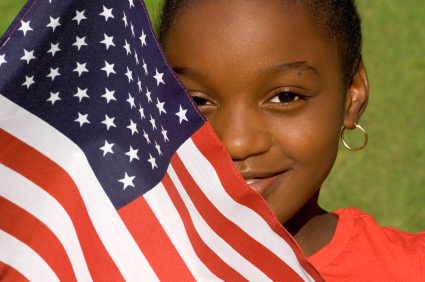 It's a hyper-political year with the upcoming presidential elections in November. It's hard to miss the election coverage with 24-hour cable news shows, TV ads, the internet, social media, newspapers and other media outlets constantly surrounding us.
It's a hyper-political year with the upcoming presidential elections in November. It's hard to miss the election coverage with 24-hour cable news shows, TV ads, the internet, social media, newspapers and other media outlets constantly surrounding us.
Often this coverage is filled with negative messages, exaggerations, innuendos, and untruths.
So, what about our children? How are they hearing these messages, or are they simply ignoring them?
From a very young age, children can and should be taught about our political system in a non-partisan way:
- How it works
- Who is elected
- The identity of key leaders from their local area
- Who is the president and vice president
- How the United States is positioned in the world
- What makes this country's political system different than others
What children learn from us matters.
They learn from our activism or lack of it, our emotions and words, whether we listen to opposing views or hold positions on civic and global issues. Children are curious about the world, but can find politics boring. They may not connect politics with issues that matter to them.
However, we can connect what concerns them with larger issues: war made real by a family member's involvement, the economy tied to family economic security and mom or dad's concern about their job, college funding, and retirement. We can involve them in our lives without scaring them. Even preschoolers can begin to make connections with voting and campaign issues.
How can we get our children connected and involved?
- Children learn about politics through conversation. Asking their opinion about political races, debates, and controversial issues ("what do you think?") helps them to learn how to express themselves, listen to opposing views, and to research politicians' views on these issues.
- Sharing voting with them is a good way to teach our children. Most kids are intuitive enough to understand that having the power to vote also means that they have a responsibility to understand why they want to vote for someone.
- The news media is aimed at adults, but watching and listening to the news can be a great family ritual. Conversing with children gives them a chance to ask questions, challenge the situation, and come up with their own viewpoint.
- Time for Kids is an issue of Time Magazine that is especially for children. Consider a subscription for a child who is eager to learn not only about politics, but about other exciting science and nature facts.
- Find out what your kids are learning at school. Some children as young as preschoolers are holding mock elections and discussing issues at their child care centers or schools.
- Tie issues to children and their family's lives and personalize them: a family in the service, a concern about health care, retirement, job security, future college, or the environment. Providing the facts to kids and then encouraging them to ask questions and come to their own conclusions can create a critical mind.
More on This Topic
- Great Books for Children (ages 6 and older): So You Want to Be President? by Judith St. George and See How They Run: Campaign Dreams, Election Schemes, and the Race to the White House by Susan E. Goodman. And see ParentMap's Guide to Civics Books here.
- The American Library Association shares politics & government resources for kids
- iCivics has interactive games and standards-aligned curriculum to help children become engaged citizens
- MediaMom discusses why motherhood and politics sometimes don't mix
This article courtesy of Bright Horizons.











